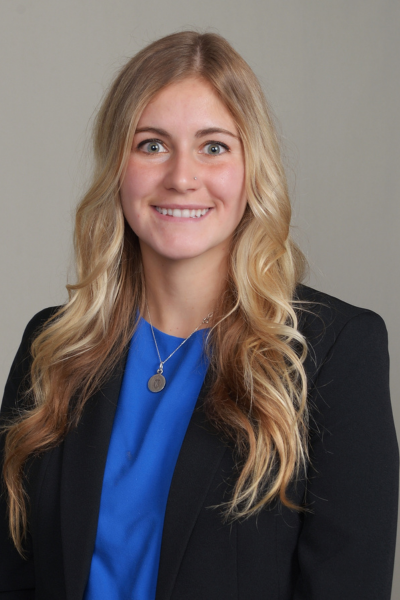Taylor Cesarz, MD
Fellow University of Wisconsin
Candidate Statement
My name is Taylor Cesarz and I am running for a fellow position on the SAEM Simulation Academy executive committee. I am currently a simulation fellow at the University of Wisconsin-Madison. My journey with simulation started during residency. Early on in residency, as a learner, I found myself gravitating toward simulation as a way to explore knowledge deficits and enhance my own learning in an engaging way. As I progressed through residency, I found myself becoming even more passionate about simulation from the perspective of an educator, and I began getting involved in simulation education for medical students and co-residents. I am seeking out a position because I want to find ways to connect to the larger simulation community and effect change on a national level.
Throughout residency, I was fortunate to have had a lot of exposure to simulation, providing me the chance to continually learn new skills to use during simulation education. I have had numerous opportunities to both design and run scenarios as well as practice important simulation principles such as pre-and debriefing. I was also able to help write and facilitate a case for the 2023 SAEM SimWars. Perhaps my favorite project, and the one which solidified my decision to pursue simulation as a career, was creating a multi-institutional gamified simulation race for emergency medicine residents. My motivation for this project stemmed from my enthusiasm for both innovation and gamification in resident education. Both SAEM SimWars as well as EMRA MedWars played a part in my inspiration.
While I was creating this race, I scoured the internet for resources to help me in the design; while there were some resources available, they were not always easy to find. I quickly learned how many hours of dedication and resources it takes to host a successful simulation event. With a national network like SAEM, I believe there are many simulation projects that may be useful to other members of the simulation community. As medical education continues to evolve, I foresee many more innovative simulation projects on the horizon. With that being said, it would be my goal to bring this spirit of innovation to the committee and develop forums for members to easily search for and/or exchange ideas of projects and resources to promote simulation and advance medical education, national collaboration, and simulation research.
My experience as a fellow thus far has taught me the importance of a collaborative community in the simulation and scholarly world. For fellows and junior faculty, navigating the challenges of transitioning to a new attending role while developing the skills to become leaders in simulation education can be difficult. I would like to work with other members of the executive committee to create support and mentoring opportunities for different levels of simulationists. My hope is to be able to create resources for project development, publishing simulation research, and the opportunity to receive mentoring from more senior leaders for our simulation committee members.
Throughout residency, I was fortunate to have had a lot of exposure to simulation, providing me the chance to continually learn new skills to use during simulation education. I have had numerous opportunities to both design and run scenarios as well as practice important simulation principles such as pre-and debriefing. I was also able to help write and facilitate a case for the 2023 SAEM SimWars. Perhaps my favorite project, and the one which solidified my decision to pursue simulation as a career, was creating a multi-institutional gamified simulation race for emergency medicine residents. My motivation for this project stemmed from my enthusiasm for both innovation and gamification in resident education. Both SAEM SimWars as well as EMRA MedWars played a part in my inspiration.
While I was creating this race, I scoured the internet for resources to help me in the design; while there were some resources available, they were not always easy to find. I quickly learned how many hours of dedication and resources it takes to host a successful simulation event. With a national network like SAEM, I believe there are many simulation projects that may be useful to other members of the simulation community. As medical education continues to evolve, I foresee many more innovative simulation projects on the horizon. With that being said, it would be my goal to bring this spirit of innovation to the committee and develop forums for members to easily search for and/or exchange ideas of projects and resources to promote simulation and advance medical education, national collaboration, and simulation research.
My experience as a fellow thus far has taught me the importance of a collaborative community in the simulation and scholarly world. For fellows and junior faculty, navigating the challenges of transitioning to a new attending role while developing the skills to become leaders in simulation education can be difficult. I would like to work with other members of the executive committee to create support and mentoring opportunities for different levels of simulationists. My hope is to be able to create resources for project development, publishing simulation research, and the opportunity to receive mentoring from more senior leaders for our simulation committee members.

